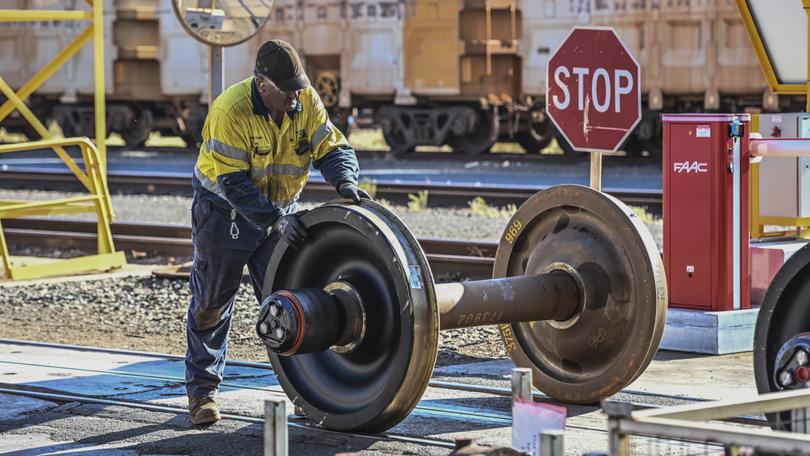Australian Taxation Office says resources industry the nation’s top tax contributor
The resources industry has paid more tax than all other sectors combined as ballooning corporate payments helped drive the national Budget to surplus.

The resources industry has paid more tax than all other sectors combined as ballooning corporate payments helped drive the national budget to surplus.
Transparency data from the Australian Taxation Office released on Friday showed big businesses paid $98 billion to the Federal Government for the 2023 financial year.
That was up 17 per cent and played a huge role as the Commonwealth posted a surplus for the first time in 15 years.
Sign up to The Nightly's newsletters.
Get the first look at the digital newspaper, curated daily stories and breaking headlines delivered to your inbox.
By continuing you agree to our Terms and Privacy Policy.ATO deputy commissioner Rebecca Saint said it was a “great result for the Australian community”.
Payments from oil and gas across the country hit $11.6bn amid higher prices, projects moving into their production life, and intervention from the ATO, Ms Saint said.
“(The 2023 financial year) is the second year in a row that the mining sector paid more tax than all other sectors combined, paying more than five times than they did in 2014–15,” she said.
It comes as the industry has been attacked by some commentators for not paying enough tax.
Iron ore miners topped the list with Rio Tinto ($5.8bn) and BHP ($5.4bn) the largest contributors.
Big companies have complex structures and also pay through subsidiaries — an example is BHP’s Jimblebar iron ore business, which paid an additional $1.6bn.
The numbers also don’t include royalties and taxes paid to State Governments.
Western Australia’s oil and gas investment boom has sent a wave of cash to Canberra — as have court proceedings by the ATO to crack down on aggressive tax structures.
The industry has long forecast tax bills would lift after the upfront costs of major projects were repaid.
Chevron ranked fourth with a bill of $4.3bn and managing director Mark Hatfield said the company would contribute “for many decades to come”.
The US-based business built the Wheatstone and Gorgon LNG plants in the Pilbara with partners.
“Chevron Australia has established itself as one of the country’s largest company taxpayers after investing more than $80 billion with our joint venture partners in the development of the Gorgon and Wheatstone natural gas facilities in Western Australia” Mr Hatfield said.
“Our A$4.2 billion company income tax payment for 2022 highlights the strong earnings we achieved in that year through high reliability and production achievements by our facilities, combining with market conditions.”
Woodside Energy paid $2.7bn in company tax directly.
Chief executive Meg O’Neill said the business was a “robust contributor to Australia’s wealth and prosperity”.
“When Woodside performs, Australia benefits, a fact clearly reflected by the more than A$21 billion in Australian taxes, royalties and levies we’ve contributed since 2011.
“In our 70th anniversary year, we remain as committed as ever to tax transparency, paying our way and meeting our obligations to government.”
Gina Rinehart’s Hancock Prospecting, Roy Hill Holdings and Atlas Iron paid about $2.3bn.
About a third of businesses did not pay tax. But that can reflect a variety of factors, including financial losses, deductions for investment, or trust structures which instead pay through the personal tax system.
‘While there are legitimate reasons why a company may pay no income tax, the Australian community can be assured we pay close attention to those who pay no income tax to ensure that they are not trying to game the system,’ Ms Saint said.
